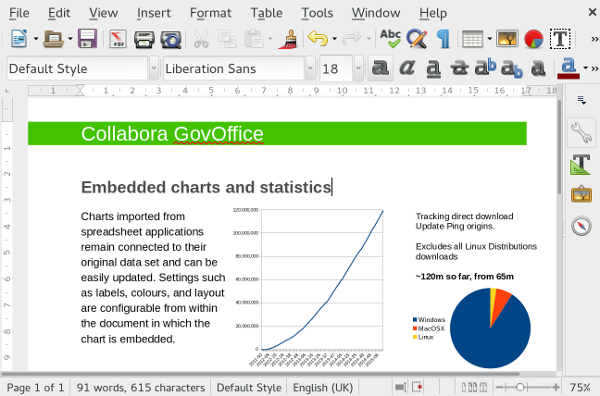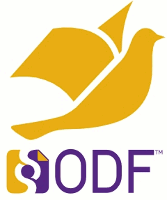Open source software is a good option for local authorities who are dissatisfied with the price and quality of their software, says Dutch Labour MP Astrid Oosenbrug. This former sysadmin believes open source and open standards can liberate local authorities from their current suppliers, who she maintains can have too much power over their customers.
Situation “has been going on for years”
It recently became apparent from an investigation by NRC and Reporter Radio that many local authorities feel they are being held hostage by their software suppliers who are making the most of a dysfunctional market with price increases. According to Oosenbrug, the situation “has been going on for years”. She has been campaigning for a long time for open standards and open source solutions, her greatest success being a parliamentary motion passed in April according to which the government would be obliged to give preference to open source in invitations to tender.
More opportunity for open source
From their dissatisfaction, Oosenbrug perceives that local authorities are seeking alternatives to their current software. Oosenbrug states: “The opportunities for open source are increasing and definitely now the government is giving it preference. Amongst local authorities we do find those where the councillors won’t interfere (with procurement choices. Ed.), but I’ve also sat in the council chamber myself. Not every intervention from The Hague is in itself bad or negative, but is on the contrary supportive.
Open source good option for local authorities
 In open source software the software’s source code is published and freely available to the public. The software can therefore be freely copied, adapted and distributed. Software standards between applications that work, services, systems and networks that work with each other can be inspected with open standards.”
In open source software the software’s source code is published and freely available to the public. The software can therefore be freely copied, adapted and distributed. Software standards between applications that work, services, systems and networks that work with each other can be inspected with open standards.”
Oosenbrug views open source and open standards as a good choice for local authorities. “Software companies have a hold on them with their products. If there’s no agreement with price rises, they stop providing the services and local authorities get into quite a bit of trouble. With open source local authorities can be freed from the stranglehold. With open source, anyone can examine the software used and inspect the source code. In this way security holes and clumsy coding are quickly traced.” Users with expertise are also looking everywhere, on account of which the software remains up to date and inexpensive solutions can often be found,” declares Oosenbrug. “There is a safe environment in which ethical hackers for example can play a major role.”
Open standards
Local authority websites are regularly attacked and are sometimes as leaky as a sieve. Consequently, Oosenbrug is also advocating open standards in addition to open source. “Of the 360 local authorities, only thirty comply with accessibility standards. You can overcome these sorts of problems with open source and open standards.” Oosenbrug believes there should be a template for websites with which local authorities can comply with all standards. “The remainder of a website can then be completed according to the local authority’s own preferences.”
Investment repays itself
Open source and open standards mean a considerable investment, but Oosenbrug believes it’s one that is repaid. “The bid that works best wins invitations to tender. Everything is checked for price and quality by the users themselves. Local authorities are currently in the land of the blind where the one-eyed man is king and they must always pay more. Software is becoming safer and cheaper with open source. The government must not view open source as a punishment, but as an opportunity.”
Municipality of Ede
Several local authorities have made progress with open source. In this way the Municipality of Ede has been able to make appreciable savings. After the changeover, it has been spending ten times less for software licences than comparable local authorities. On account of this, total ICT expenditure has been one quarter less than previous years.
Original Dutch source article: http://www.binnenlandsbestuur.nl/digitaal/nieuws/open-source-kan-gegijzelde-gemeenten-bevrijden.9500508.lynkx
Originally posted on Bristol Wireless.




 In open source software the software’s source code is published and freely available to the public. The software can therefore be freely copied, adapted and distributed. Software standards between applications that work, services, systems and networks that work with each other can be inspected with open standards.”
In open source software the software’s source code is published and freely available to the public. The software can therefore be freely copied, adapted and distributed. Software standards between applications that work, services, systems and networks that work with each other can be inspected with open standards.”

 It’s that time of year again when summer
It’s that time of year again when summer 
 The Dutch government wants to accelerate the adoption of
The Dutch government wants to accelerate the adoption of